macOS 10.14 Mojave: release date, news and features
With Apple's WWDC 2018 over for another year, we now have a clearer idea of what macOS 10.14 Mojave will bring, and we've collected all the latest news and rumors of the upcoming update.
While there was a rumor that there would be a mass influx of iOS apps, there are instead just a few core iOS apps migrating to macOS 10.14, but Apple’s Craig Federighi did say that Apple is working on a way to bring more key apps over to macOS, but that likely won’t happen until 2019.
We've also heard from a developer who has already started digging into the process of porting iOS apps to macOS 10.14 Mojave, and while there are some issues that need to be worked out, it does offer a promising glimpse of the future of iOS apps on Macs.
So, read on to discover all the new features that have been announced for macOS Mojave, and we’ll also do a bit of speculation regarding the release date and which Macs will have access to this new operating system.
Cut to the chase
- What is it? The 2018 edition of Apple’s Mac operating system, macOS
- When is it out? Likely September or October 2018
- What will it cost? macOS 10.14 will be free
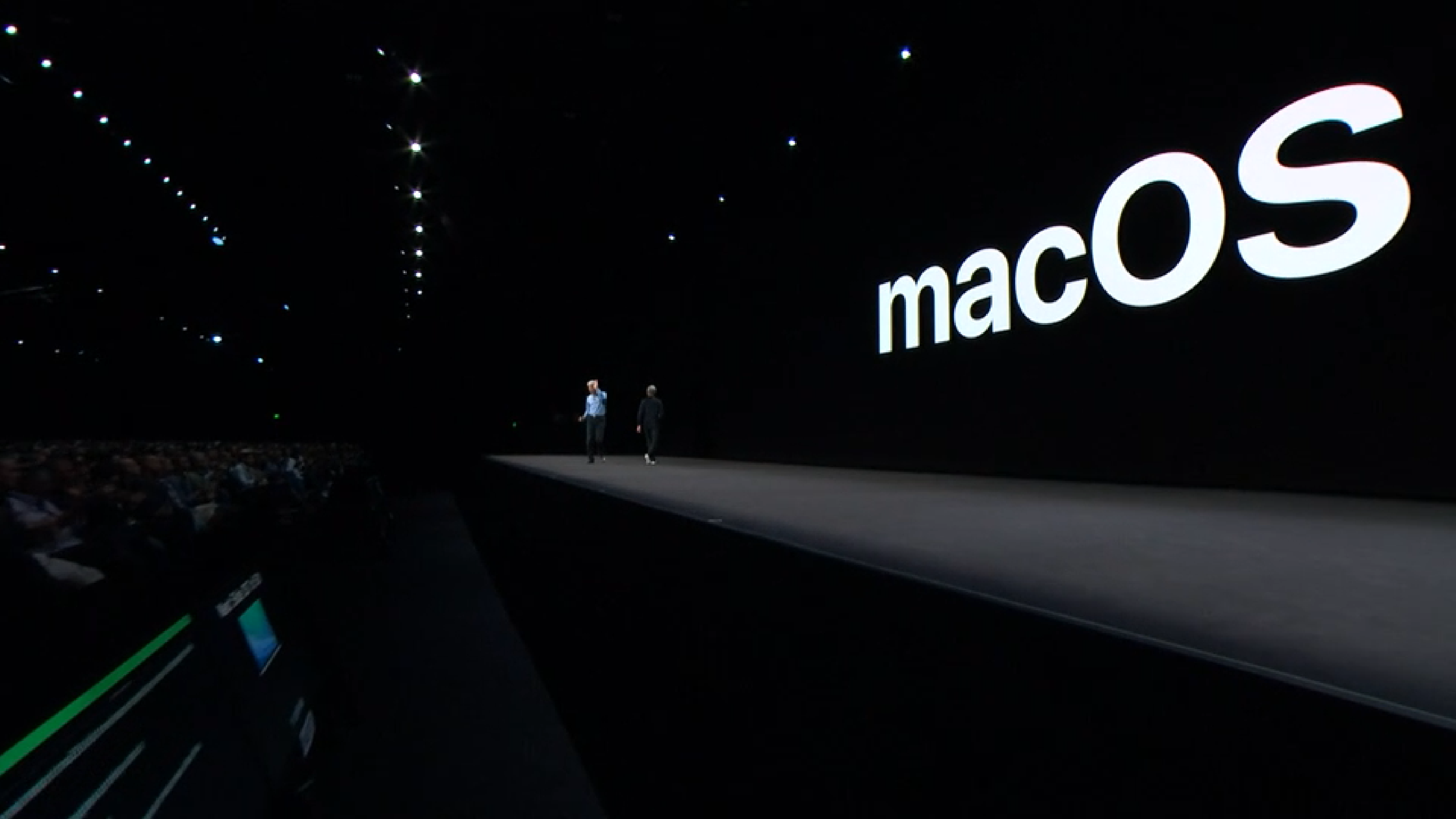
macOS 10.14 Mojave release date
While we don’t know exactly when Apple will release macOS Mojave, we’re pretty sure it will arrive sometime this fall, based on past releases.
Since 2013 and the release of OS X 10.9 Mavericks, Apple has teased its latest version of the Mac OS during its annual Worldwide Developers Conference (WWDC) keynote in early June, followed by a full release September or October of the same year. Apple has also done this completely free of charge since then.
Apple did tease what macOS Mojave has in store at the WWDC keynote earlier today, and they’ve released a developer preview for it that you can download right now. For everyone else, we’ll just have to wait until Apple’s Special Event sometime in September before we’ll know when we can get our hands on the final build.
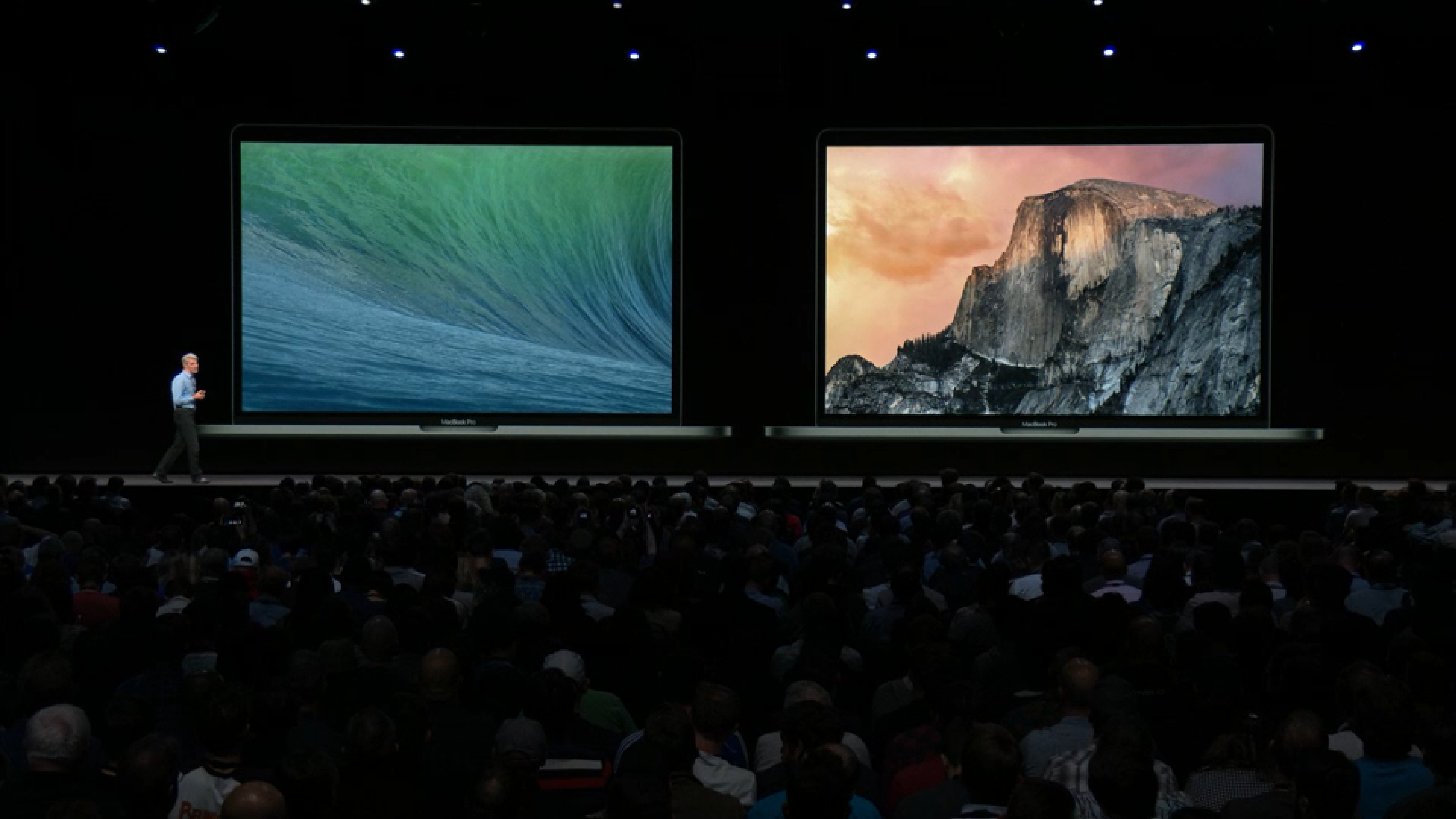
macOS 10.14 Mojave specifications
We now know what specs macOS 10.14 Mojave will require. And, unfortunately some older Macs are going to have to go without the major update. This is unlike macOS 10.13 High Sierra, which practically had the same requirements.
First off, prepare for macOS 10.14 to require at least 14.3GB of hard drive space for the installation, as that’s what was required last year. To keep it on the safe side, make it 20GB.
Next, Macs that received the 10.13 upgrade were required to be equipped with at least 2GB of memory (or RAM) and running OS X 10.8 or later. This year, however, these are the Macs that will be supported by macOS 10.14 Mojave
- MacBook (Early 2015 or newer)
- MacBook Pro (Mid 2012 or newer)
- MacBook Air (Late 2012 or newer)
- Mac mini (Late 2012 or newer)
- iMac (Late 2012 or newer)
- Mac Pro (Late 2013 or newer, or older models with Metal-compatible GPU)
- iMac Pro (2017)
Unfortunately, while the required models rarely change year over year, they have with macOS 10.14, so if you have an older MacBook, you might need to upgrade to enjoy this new version of the OS.
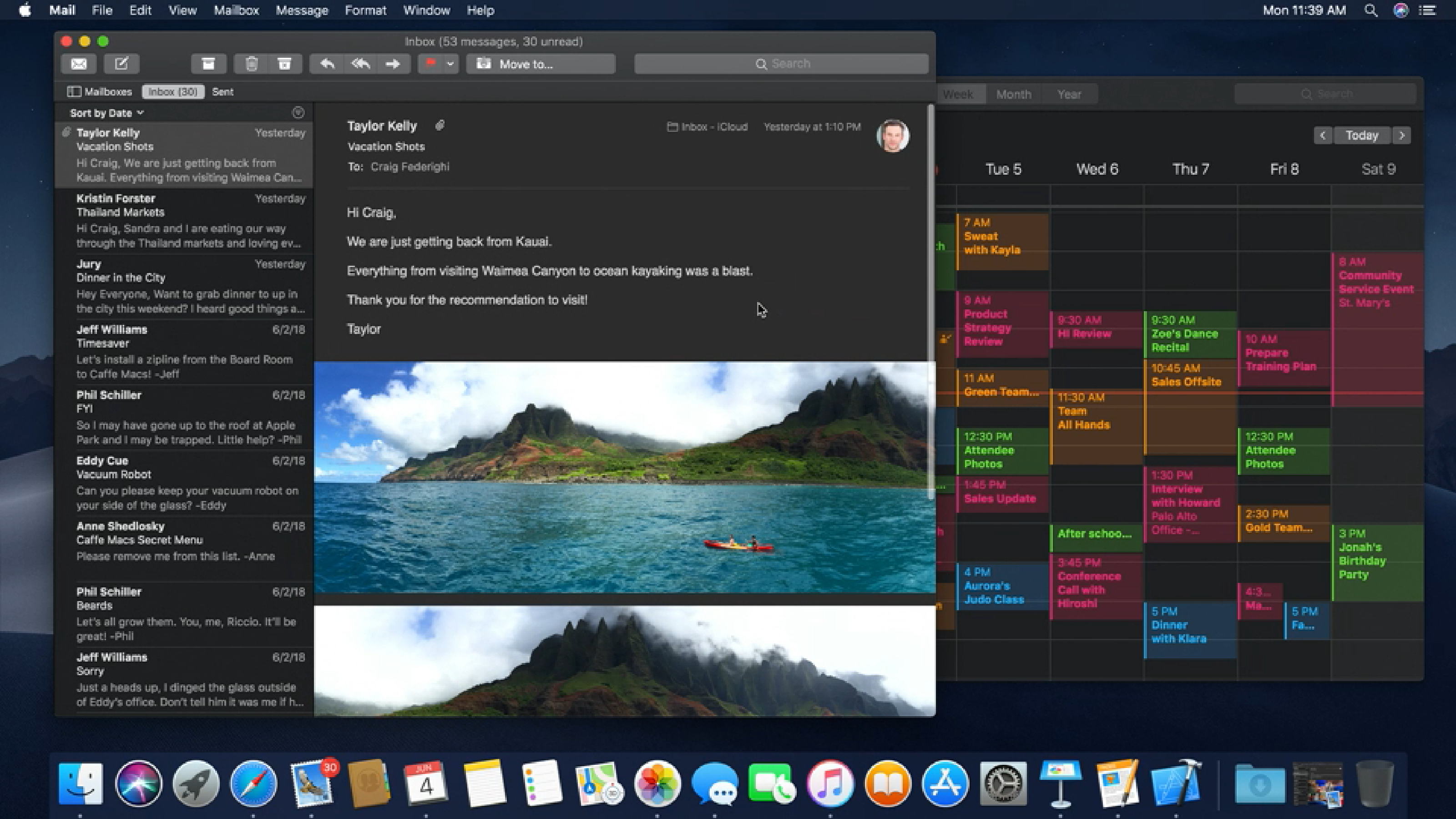
macOS 10.14 Mojave features
MacOS 10.14 Mojave is bringing a ton of new features to your Mac.
From Finder improvements to more rigid security, the best Macs are about to become a lot better.
Read on to discover all the new features coming to your Mac soon.
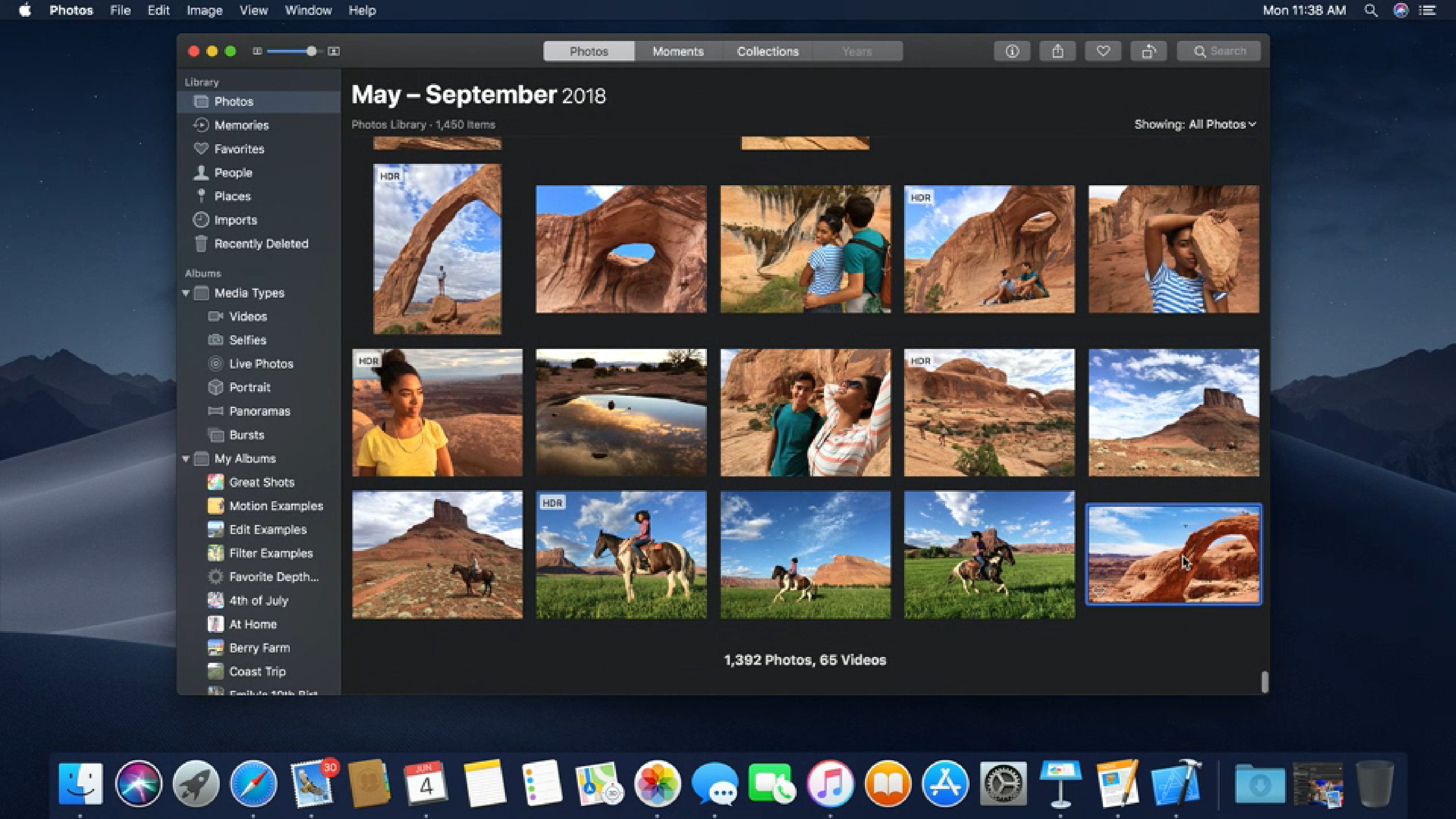
Dark Mode
With macOS Mojave, Apple is introducing a system-wide Dark Mode, this will extend to every first-party program on your Mac.
Even Xcode is getting a full makeover, completely in black, making those extended programming sessions more comfortable for your eyes.
As for third-party programs, they'll be able to adopt it and we think many developers will.
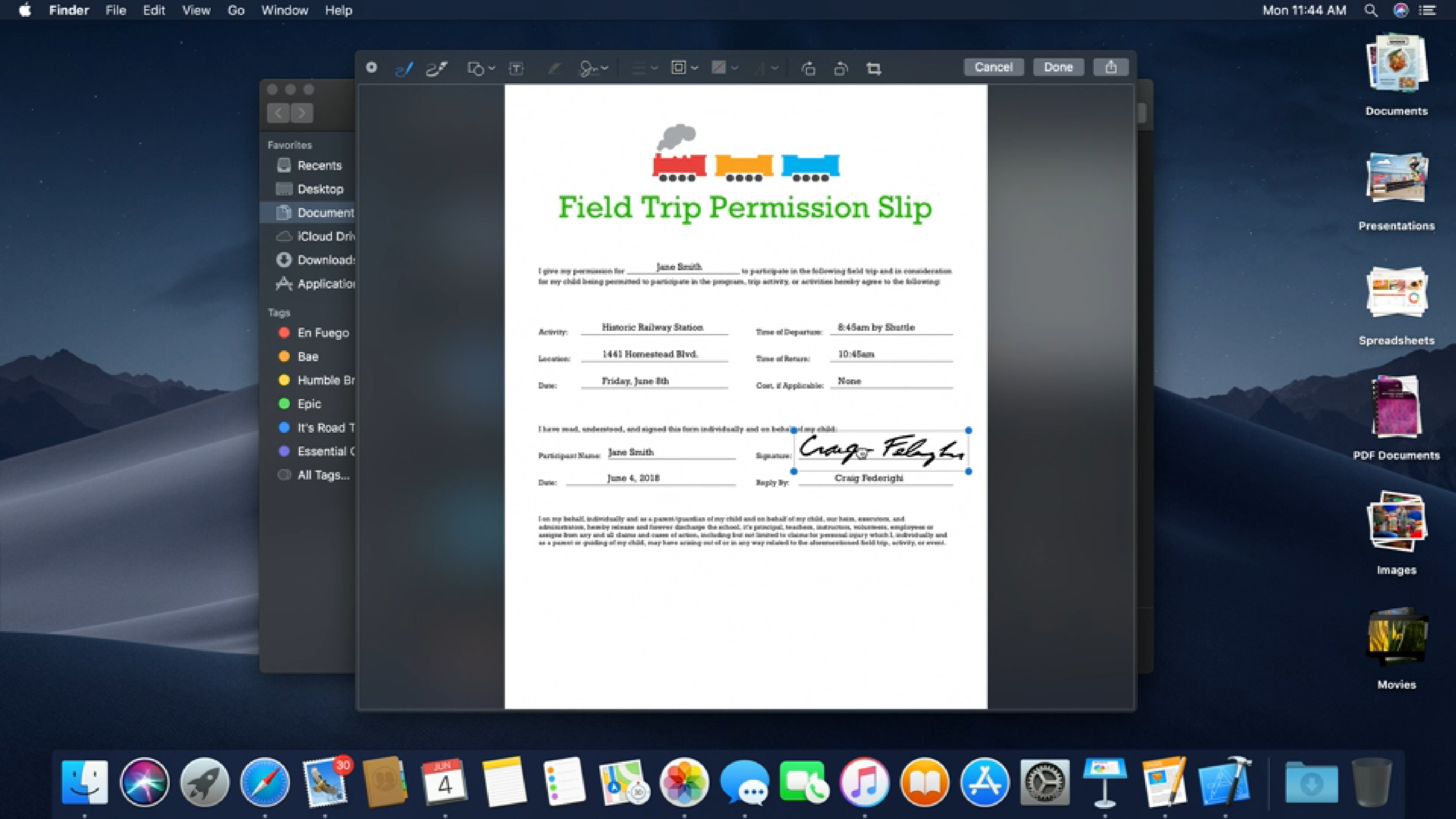
Stacks
Anyone who uses a Mac will know that the desktop can start to get cluttered during a full day of work.
With Stacks, similar files will be stacked together so that you have a less cluttered desktop.
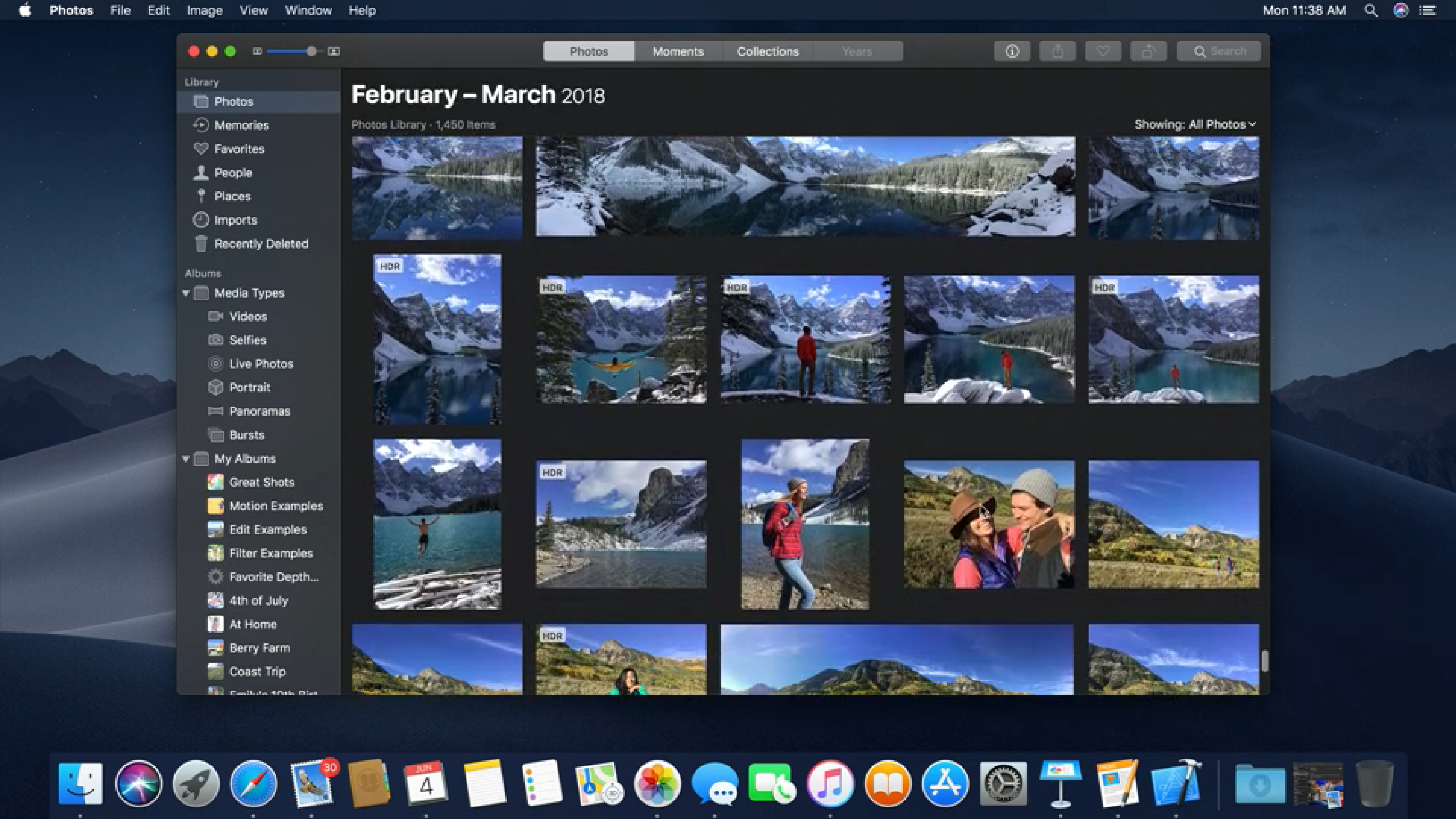
Gallery View
In macOS 10.14 Mojave, Apple has added a new Gallery View to Finder. This will let you quickly browse through, annotate and edit files. No matter what kind of file you select, you'll be able to quickly and easily find exactly what you're looking for.
This is made even easier thanks to Apple adding a very detailed metadata display to the Preview pane. This will make it easier than ever before to take note of all the information of any file on your Mac.
And, with Quick Actions in the Preview pane, you won't even need to leave Finder to work on files. You'll be able to edit images, add protection to files and more. You can even assign Automator tasks as Quick Actions to make browsing through files even easier.
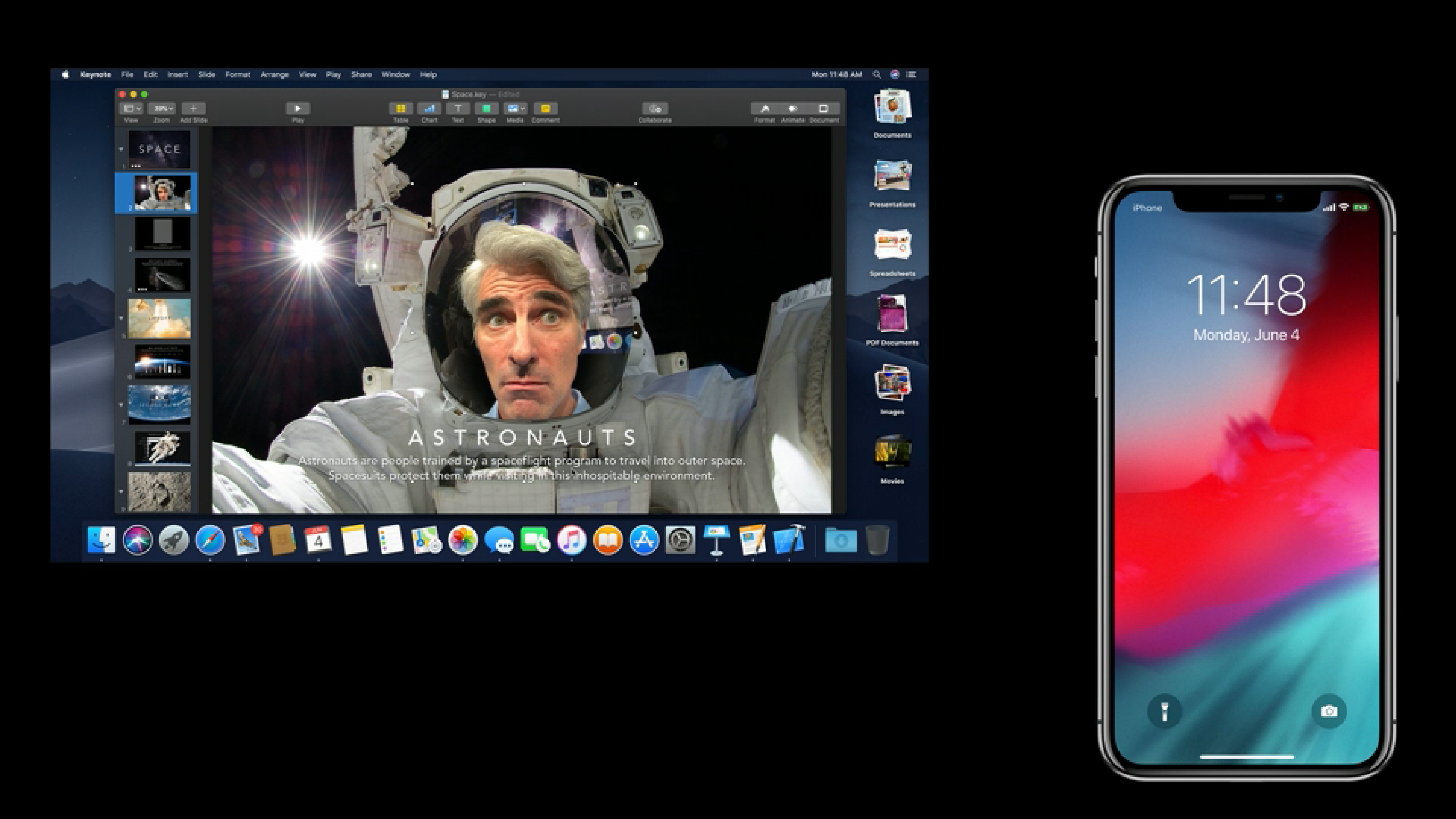
Markup in Quick Look and Screenshots
Quick Look is already an quick and easy way to look at files quickly, and in macOS Mojave, you'll be able to quickly and efficiently use Markup to edit files you open in Quick Look.
Markup will also be implemented into screenshots. You'll be able to quickly bring up any screenshot and zoom or edit any content within. This is possible thanks to improvements to the way macOS handles screenshots. Once you capture a screen, a preview image will open in the corner of your screen, much like iOS. You can then click on this preview to edit your Screenshot.
That's not all though, Screenshots are still a simple shortcut away, but with macOS Mojave, a new easy-to-use menu includes screen-recording tools, so that you can capture animated content.
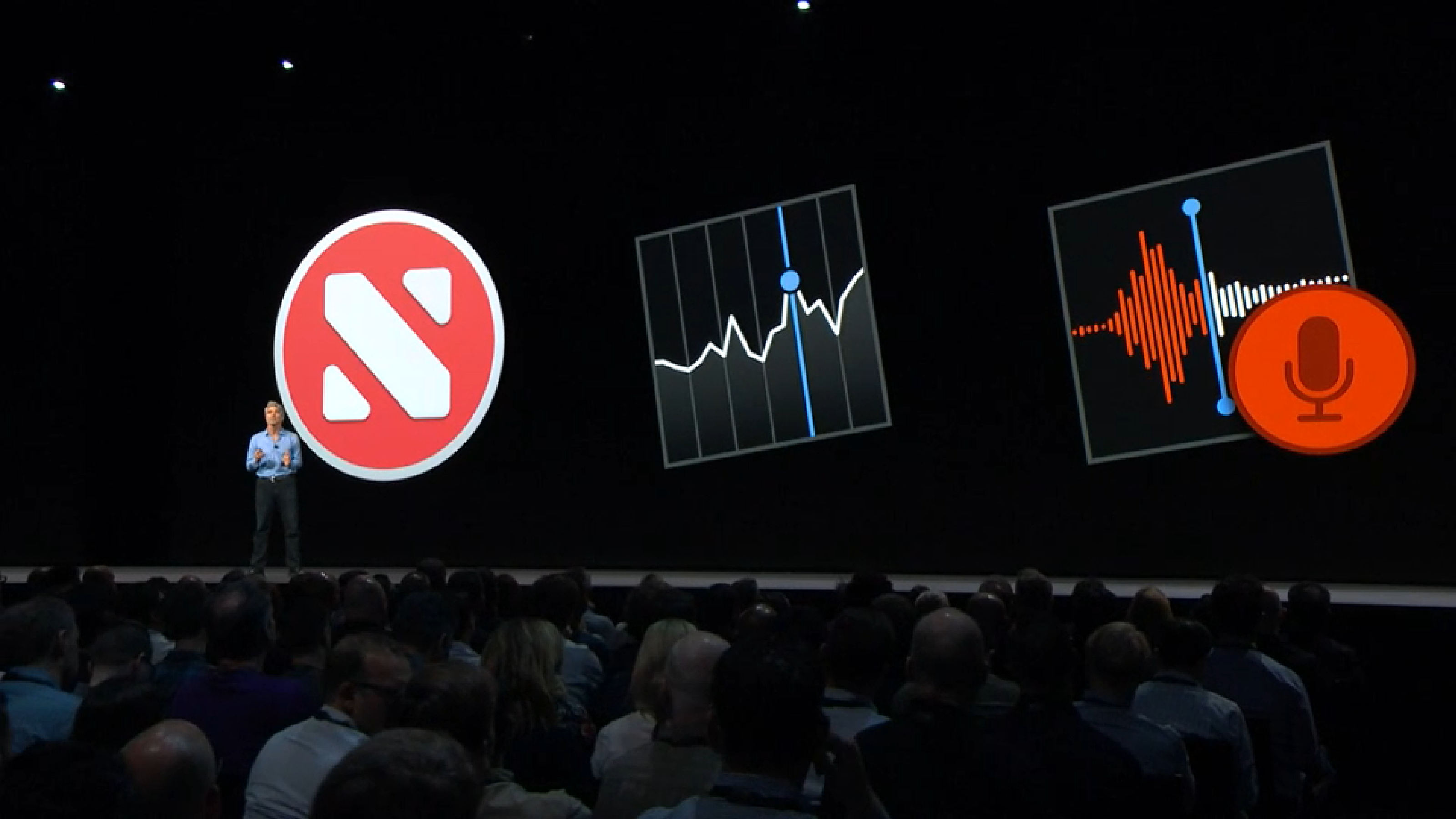
Apps
With macOS Mojave, Apple will bring some essential apps from iOS to macOS. With News, Stocks, Voice Memos and Home, you'll be able to further integrate yourself into the Apple ecosystem.
And, of course you'll be able to use the power of the best Macs to use these apps to their full potential.
However, if you're looking forward to finding your favorite iOS apps on your Mac, you're going to have to wait until at least 2019.
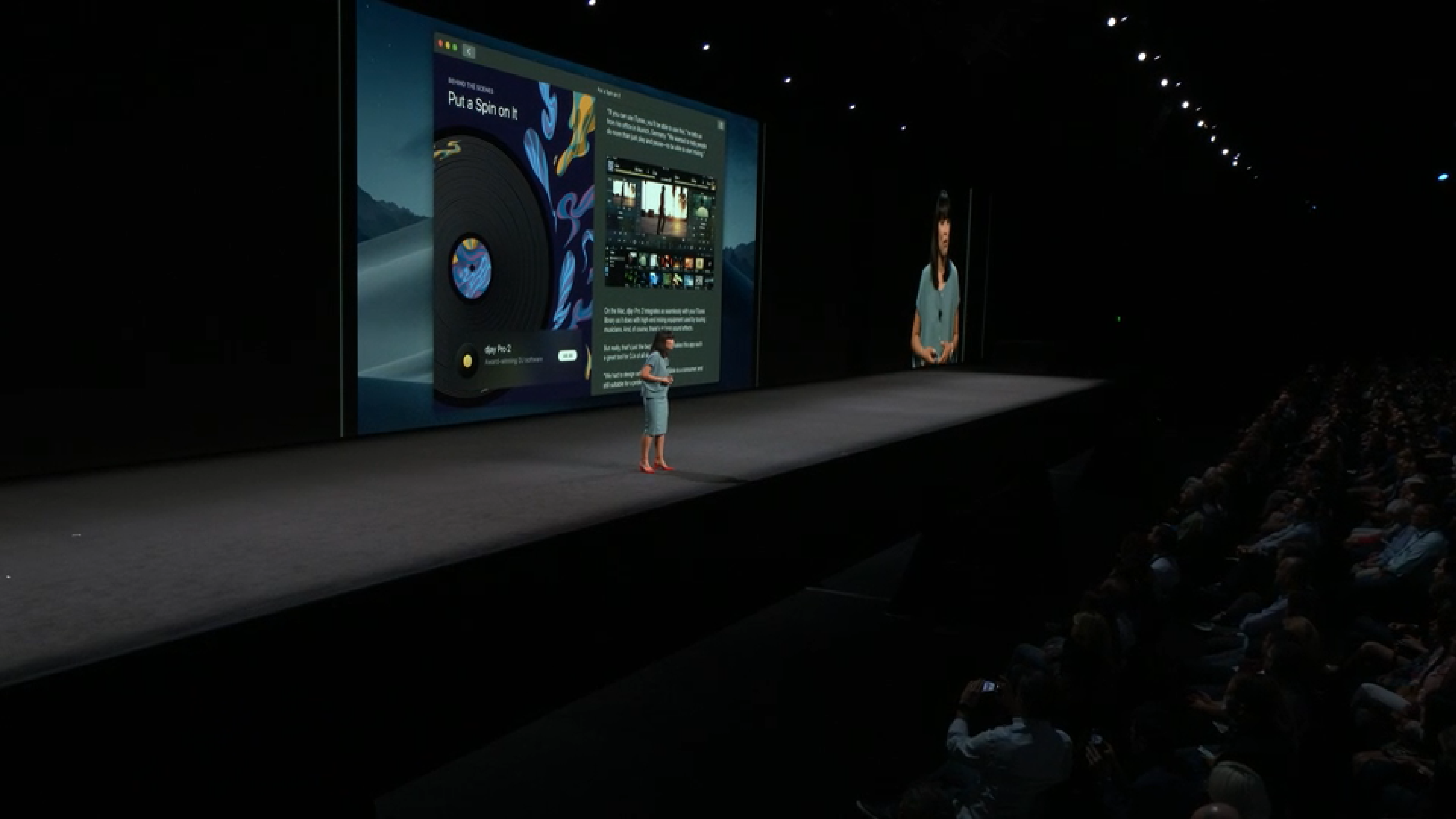
Security
Apple is concerned about your device security, and with macOS Mojave, macOS will ask for permission for more features, now including the camera and microphone. It will also provide more robust protection to your file system.
The Cupertino giant also announced security enhancements to Safari, shutting down cookies that track you across websites, making sure Safari asks permission before it allows the cookies any kind of access to your browsing data.
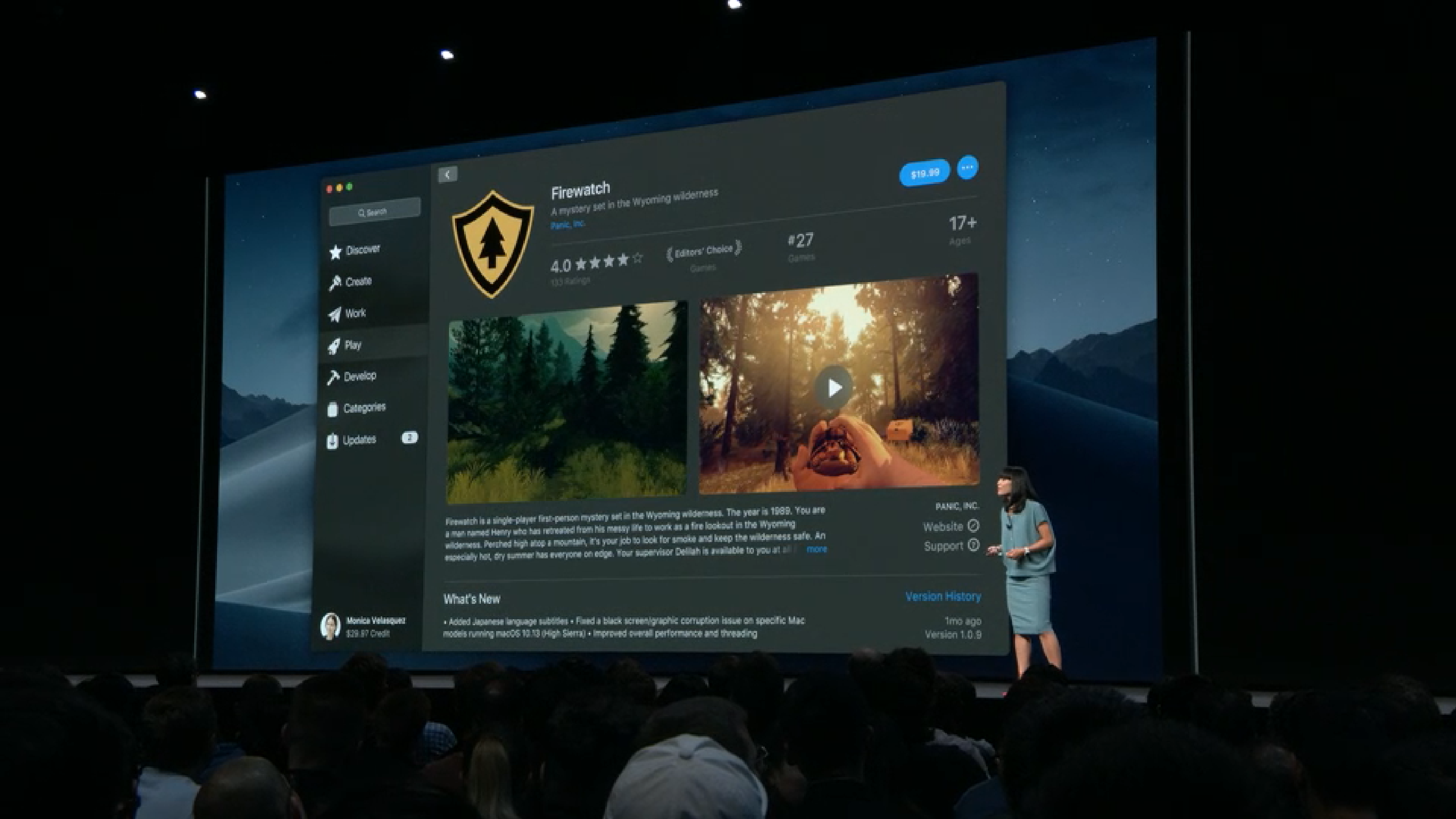
New Mac App Store
The App store has been on macOS for years, but it always seemed a little out of place. That's about to change. Apple announced a new Mac App Store at WWDC 2018 that has been created solely for the best Macs.
It will let you browse through apps depending on what kind of app you're looking for, so that if you're looking for a music production app, you can quickly and efficiently find the best app for you.
There are also a wide variety of third-party app developers, like Microsoft and Adobe, that are bringing their programs to the Mac App Store, so that you won't have to go through some dodgy websites to download the apps you need.
- These are the best Macs we’ve tested within the past year
Contributer : Techradar - All the latest technology news https://ift.tt/2H81PFh

 Reviewed by mimisabreena
on
Tuesday, June 19, 2018
Rating:
Reviewed by mimisabreena
on
Tuesday, June 19, 2018
Rating:
















No comments:
Post a Comment